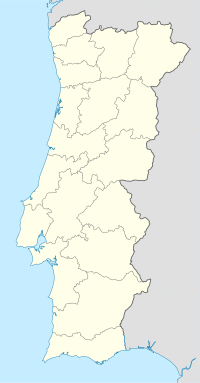June 2017 Portugal wildfires
This article documents a current event. Information may change rapidly as the event progresses, and initial news reports may be unreliable. The latest updates to this article may not reflect the most current information. (June 2017) |
| 2017 Portugal wildfires | |
|---|---|
 NASA visible satellite image of the fires and associated smoke plumes across Portugal on 18 June | |
| Date(s) | 17 June 2017 – ongoing |
| Location | Portugal |
| Coordinates | 39°57′N 8°14′W / 39.950°N 8.233°W |
| Statistics | |
| Total fires | ≥60 |
| Impacts | |
| Deaths | 62 confirmed |
| Non-fatal injuries | 54 confirmed (5 critical) |
| Map | |
A series of deadly wildfires erupted across central Portugal during the overnight of 17–18 June 2017, resulting in at least 62 deaths. The majority of deaths took place near Pedrógão Grande when a fire swept across a road filled with evacuees. Portuguese officials dispatched more than 1,700 firefighters nationwide to combat the blazes and Prime Minister Antonio Costa declared three days of national mourning.
Background
An intense heat wave preceded the fires, with many areas of Portugal seeing temperatures in excess of 40 °C (104 °F). During the overnight of 17–18 June, more than 60 fires erupted across the country,[1] particularly in mountainous areas 200 km (120 mi) northeast of Lisbon.[2] The initial fires began in the Pedrógão Grande municipality before spreading dramatically.[3] The cause of the fires is unknown as of the afternoon of 18 June; however, dry thunderstorms preceded the event and may have ignited some fires.[2]
Events
At least 62 people died nationwide in the fires,[1] the largest loss of life due to wildfires in Portugal since 1966.[4] More than 54 people were injured, including 8 firefighters;[5] five people—four firefighters and one child—were in critical condition.[3] Two firefighters were also reported missing.[1] The greatest loss of life took place on a rural road in Pedrógão Grande, where 47 people died in or near their cars when a fire overtook the area; 30 people died while trapped in their vehicles while the other 17 died nearby trying to escape on foot. Another 11 people died in Nodeirinho, near the IC8 motorway.[1][2] Dozens of small communities were severely affected.[6][7][8]
Prime Minister Antonio Costa called the disaster "the greatest tragedy we have seen in recent years in terms of forest fires".[1] Three days of national mourning were declared beginning on 18 June.[1] President Marcelo Rebelo de Sousa met with survivors who evacuated to Leiria.[3] More than 1,700 firefighters were deployed to combat the fires. France and Spain provided a collective five water-bombing planes and the European Union began coordinating international relief efforts on 18 June.[1][2] Many people evacuated to neighboring Ansião, where residents provided them with shelter.[3] Low-hanging smoke prevented helicopters from providing support, hampering firefighting efforts. Some survivors criticized inadequate response from the government, claiming no firefighters reached them for hours after the blaze began. They also stated poor forestry planning was to blame.[2]
See also
References
- ^ a b c d e f g "Portugal forest fires kill 62 near Coimbra". BBC. 18 June 2017. Retrieved 18 June 2017.
- ^ a b c d e Andrei Khalip (18 June 2017). "At least 62 killed in forest fire still raging in Portugal". Reuters. Retrieved 18 June 2017.
- ^ a b c d Sam Jones (18 June 2017). "Huge forest fires in Portugal kill more than 60 people". The Guardian. Retrieved 18 June 2017.
- ^ "Portugal forest fires kill 57 near Coimbra". BBC. 18 June 2017. Retrieved 18 June 2017.
- ^ Julia Jones, Nicole Chavez, and Chandrika Narayan (18 June 2017). "Portugal fire victims burned in cars as they fled; 62 killed". CNN. Retrieved 18 June 2017.
{{cite web}}: CS1 maint: multiple names: authors list (link) - ^ publico.pt (17 June 2017). "Incêndio em Pedrógão ao minuto: Número de mortos aumenta para 57. Trovoadas secas na origem do fogo". Retrieved 18 June 2017.
- ^ Observador.pt. "Pelo menos 57 pessoas morrem no incêndio em Pedrógão Grande". Retrieved 18 June 2017.
- ^ Diário de Notícias (17 June 2017). "57 mortos no incêndio em Pedrógão Grande". Retrieved 18 June 2017.

